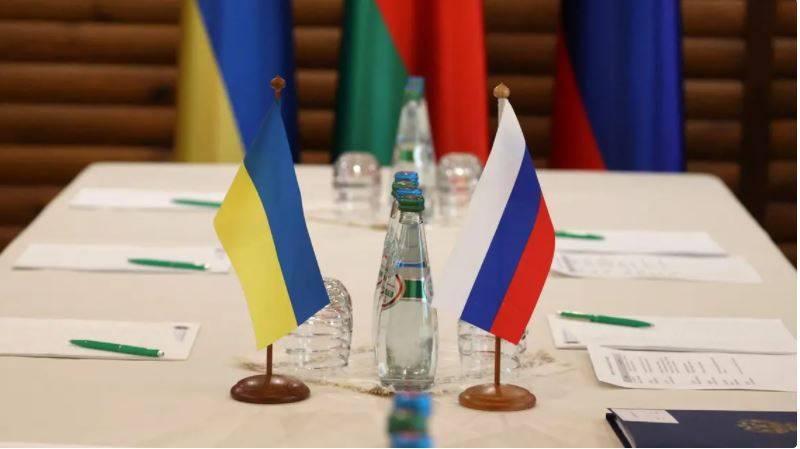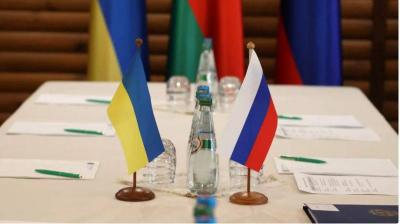Ukraine and Russia have made significant progress on a temporary 15-point peace plan, which includes a ceasefire and the withdrawal of Russian troops if Kyiv declares neutrality and accepts restrictions on its armed forces, according to three individuals involved in the talks. The proposed deal, detailed by the Financial Times, was fully discussed for the first time by Ukrainian and Russian negotiators on Monday. It will require Kyiv to abandon its ambitions to join NATO and commit to not hosting foreign military bases or weapons in exchange for protection from the West.
**Terms of the Agreement**
Despite Moscow and Kyiv stating on Wednesday that they have made progress on the terms of the agreement, Ukrainian officials remain skeptical that Russian President Vladimir Putin is fully committed to peace, fearing that Moscow may be buying time to regroup its forces and resume its offensive. Mykhailo Podolyak, chief advisor to Ukrainian President Volodymyr Zelensky, told the Financial Times that any deal would involve "the departure of the Russian Federation's forces from any case from the territories of Ukraine" that have been seized since the invasion began on February 24, including the southern regions along the Sea of Azov and the Black Sea, as well as territories to the east and north of Kyiv.
Ukraine will retain its armed forces but will have to remain outside military alliances such as NATO and refrain from hosting foreign military bases on its territory. Putin's press secretary, Dmitry Peskov, told reporters on Wednesday that Ukraine's neutrality on a status similar to Austria or Sweden is a possibility. Peskov added, "This option is currently being discussed, and it can be considered neutral."
Russian Foreign Minister Sergey Lavrov stated that "very specific formulations" were "close to agreement" in the negotiations. Despite the progress in peace talks, Ukrainian cities have been subjected to heavy bombardment for the third consecutive day as Kyiv claims to be launching a counter-offensive against the Russian invaders.
In a virtual address to Congress members on Wednesday, Zelensky urged the United States to impose a no-fly zone or provide fighter jets or other means to repel the Russian attack on his country, as well as to impose harsher economic sanctions on Moscow. In a dramatic appeal, Zelensky stated that Ukraine needs American support after Russia launched a "brutal attack on our values." He urged Americans to remember the attacks on Pearl Harbor and September 2001, showcasing a poignant video of missile attacks and bombings that devastated Ukrainian cities.
Although the Ukrainian constitution requires the country to seek NATO membership, Zelensky and his aides have increasingly downplayed Ukraine's chances of joining the transatlantic military alliance, which Russia considers a provocation. Two sources indicated that the proposed deal also included provisions to enshrine the rights of the Russian language in Ukraine, where it is widely spoken despite Ukrainian being the only official language. Russia framed its invasion as an attempt to protect Russian speakers in Ukraine from what it claims is "genocide" by "neo-Nazis."
The most significant sticking point remains Russia's demand that Ukraine recognize the annexation of Crimea in 2014 and the independence of two breakaway entities in the eastern Donbas border region. Sources said that Ukraine has so far refused to discuss this issue but is willing to divide the matter.




